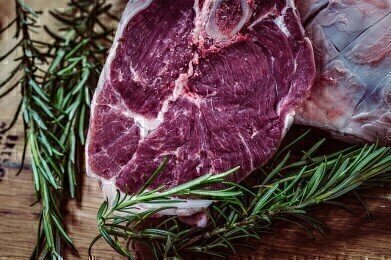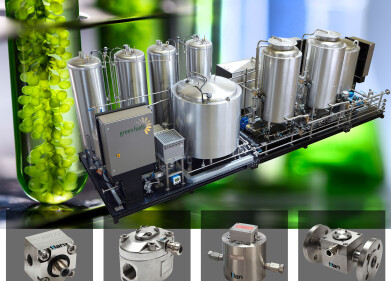Laboratory Products
When Will 'Meat-Free' Meat Become the Norm?
Jul 07 2019
According to a new report published by global consultancy firm AT Kearney, more than 50% of meat products will be replaced by plant-based or lab-grown alternatives by 2040. The report was based on information sourced from multiple industry experts who predict that global meat eating habits are about to undergo a drastic change - in just two decades 35% of meat will be grown in labs, while a further 25% will be plant based.
Meat substitutes key to "transition phase"
Experts predict traditional meat substitutes such as tofu, soy protein, jackfruit and mushrooms will continue to gain popularity and become "more relevant in the transition phase towards cultured meat." Insect protein will also infiltrate global diets, including crickets, mealworms and almost 2000 other species. The insect trend builds on a recent statement released by the United Nations citing edible insects as a potential solution to world hunger and the global food shortage. Meat lovers are also embracing novel vegetarian and vegan meat replacements that use binders and hemoglobin to replicate the taste and texture of meat.
The rise of meat replacements is backed by the wild success of companies like Beyond Meat, whose shares have soared by 550% since the IPO. Overall, the plant-based meat alternatives market is valued at a huge US$4.6 billion and is projected to grow by up to 30% a year over the next decade.
The rise of lab-grown cultured meat
Newer to the scene is lab-grown cultured meat, also known as slaughter-free meat, clean meat and cell-based meat. Meat is "grown" by extracting a single cell from a living animal and using it to culture a product that's identical to conventional meat such as beef, pork or chicken.
Currently priced at around US$80 per 100 grams, cultured meat isn't yet a commercially viable option, though as research and technology progresses experts predict it will account for 35% of meat consumption by 2040. It's only just starting to gain approval and regulation from global food regulators such as the US Department of Agriculture (USDA) and Food and Drug Administration (FDA).
With almost 50% of the world's agricultural harvest allocated as livestock feed, plant-based and lab-grown alternatives bring an eco-friendly edge to the meat eating industry.
Introducing cultured meat to the general market will require the latest technology and laboratory equipment. For a closer look at the new state-of-the-art SM 400 cutting mill from Retsch, don't miss 'Cutting Power for Larger Sample Volumes and Increased Throughput'
Digital Edition
Lab Asia 31.2 April 2024
April 2024
In This Edition Chromatography Articles - Approaches to troubleshooting an SPE method for the analysis of oligonucleotides (pt i) - High-precision liquid flow processes demand full fluidic c...
View all digital editions
Events
Apr 17 2024 Tokyo, Japan
Apr 22 2024 Marrakech, Morroco
Making Pharmaceuticals Exhibition & Conference
Apr 23 2024 Coventry, UK
Apr 23 2024 Kintex, South Korea
Apr 23 2024 Seoul, South Korea


.jpg)






.jpg)








